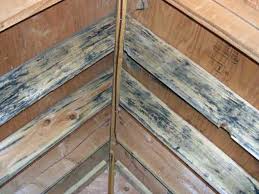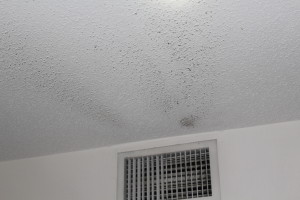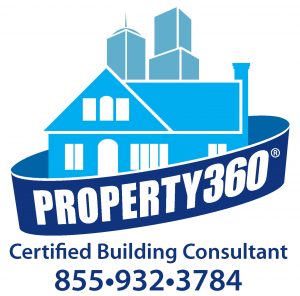Mold in Rental Properties
 Moisture intrusion from faulty plumbing, roof leaks, water intrusion through walls/windows from clogged gutters, sprinkler systems or damaged wall cladding often lead to a more severe mold growth from one of the water indicator molds such as stachybotrys, chaetomium or memnoniella. Generally, once we have this type of situation, we will need to remove affected materials and restore the drywall or affected area. Those living in the metro Jacksonville and metro Orlando areas of Florida are welcome to call us toll free 855-932-3784 for sampling done through a mold assessment for $495.00.
Moisture intrusion from faulty plumbing, roof leaks, water intrusion through walls/windows from clogged gutters, sprinkler systems or damaged wall cladding often lead to a more severe mold growth from one of the water indicator molds such as stachybotrys, chaetomium or memnoniella. Generally, once we have this type of situation, we will need to remove affected materials and restore the drywall or affected area. Those living in the metro Jacksonville and metro Orlando areas of Florida are welcome to call us toll free 855-932-3784 for sampling done through a mold assessment for $495.00.
 What all parties should understand is mold is a health issue to many persons and avoiding the issue will only make the situation worse.
Landlord liability for mold. (I am not a lawyer and this should not be construed as legal advice).
To the best of my knowledge, Florida does not have any laws which specifically addresses a landlords duties or liability regarding mold, mold prevention or mold remediation. However, landlords do have an obligation by the legal doctrine of “implied warranty of habitability” and it is that doctrine which a landlord would have to defend against if a tenant filed a lawsuit for mold related illness.
Tenant rights.
Tenants have the legal right to receive a safe and habitable residence from the landlord. Florida specifically provides the residence must have heat, functional plumbing/electrical and be free of leaks. Obviously, there are many other rights such as safe stairs, fire protection, sanitation and so on. Tenants who are reporting illness related to dampness or mold should be viewed as a priority by the landlord. Aspergilliosis is a recognized medical condition and long term exposure is considered a health threat.
How both parties can recognize a potential mold threat.
What all parties should understand is mold is a health issue to many persons and avoiding the issue will only make the situation worse.
Landlord liability for mold. (I am not a lawyer and this should not be construed as legal advice).
To the best of my knowledge, Florida does not have any laws which specifically addresses a landlords duties or liability regarding mold, mold prevention or mold remediation. However, landlords do have an obligation by the legal doctrine of “implied warranty of habitability” and it is that doctrine which a landlord would have to defend against if a tenant filed a lawsuit for mold related illness.
Tenant rights.
Tenants have the legal right to receive a safe and habitable residence from the landlord. Florida specifically provides the residence must have heat, functional plumbing/electrical and be free of leaks. Obviously, there are many other rights such as safe stairs, fire protection, sanitation and so on. Tenants who are reporting illness related to dampness or mold should be viewed as a priority by the landlord. Aspergilliosis is a recognized medical condition and long term exposure is considered a health threat.
How both parties can recognize a potential mold threat.
 We have investigated hundreds of mold complaints and we typically find there is elevated humidity due to faulty air conditioning systems. Often, the tenant is not changing the filter frequently enough and equally often, the system is aged, needs service or is inadequately sized for the property. Poor maintenance of wall cladding systems, leaking windows/doors and missing insulation also contribute to the inability of the system to properly remove water vapor from the air which leads to an elevated moisture condition in the residence. Tenants may not be running the system enough due to high electric bills, although that alone may still not be sufficient to lower the relative humidity in the home. We also find many properties do not have adequate ventilation such as bath exhaust fans or attic ventilation.
We have investigated hundreds of mold complaints and we typically find there is elevated humidity due to faulty air conditioning systems. Often, the tenant is not changing the filter frequently enough and equally often, the system is aged, needs service or is inadequately sized for the property. Poor maintenance of wall cladding systems, leaking windows/doors and missing insulation also contribute to the inability of the system to properly remove water vapor from the air which leads to an elevated moisture condition in the residence. Tenants may not be running the system enough due to high electric bills, although that alone may still not be sufficient to lower the relative humidity in the home. We also find many properties do not have adequate ventilation such as bath exhaust fans or attic ventilation.
 If either party suspects a mold issue, the first thing you should do is inspect the residence for any signs of visible mold, water leaks or water intrusion around windows/doors. You should check the temperature readings at the air supply/return to see if you have at least a 14 degree differential between the warm air inducted and the cold air returned. Further, you should check the relative humidity in each room; humidity readings over 60% are a concern. Check the air filter to make sure it is clean, check the A coil for fungal presence and the blower for dust build-up and if necessary, have the system checked by a trained HVAC technician.
Mold growth on walls, fabrics, furnishings or ceilings should always be checked by a Licensed Mold Assessor as soon as possible. For properties experiencing this type of mold growth in the metro Jacksonville and metro Orlando areas of Florida, call us toll free at 855-932-3784 for a quote on a mold assessment of this scope.
What the landlord should not do!
1. Assume the complaint is not valid.
2. Fail to investigate the situation with properly trained personnel.
3. Postpone needed repairs.
4. Fail to relocate the tenant (if necessary) while repairs are made.
5. Fail to properly document your findings.
6. Fail to present your findings to the tenant, in writing.
7. Fail to present options to your tenant including relocation, early termination of the lease, etc.
8. Fail to recognize your obligation to provide a safe and habitable residence.
What the tenant should not do!
1. Fail to report your concern as soon as it is recognized.
2. Fail to keep the premises clean and to change the air filter per the landlord’s schedule. Note: If you are tasked with changing filters, keep a log or receipts of filter purchases.
3. Fail to document your communication with the landlord.
4. Arbitrarily withhold rent payments based on your suspicions – you are not allowed to do this. Note: if you are in a position where you feel the landlord is failing in their duty to provide a safe and habitable residence, you should consult an attorney. The law may allow for withholding of rental payments but you will need legal approval.
5. Have repairs made and expect the landlord to reimburse you. This should never be done without advice from an attorney. Further, you are not allowed to make repairs on a property you do not own. Removing mold without repairing the situation which caused the mold growth is a waste of time and money. You are better served by moving (with advice from an attorney).
6. Purchase or accept a dehumidifier as a solution to elevated humidity. First, it doesn’t work and second, it does not address the problem and in fact, it may make the problem worse.
7. Never hire a mold assessor or mold remediator without advice from an attorney – you are most likely wasting your money. That includes our firm! If you live in the metro Jacksonville and metro Orlando areas of Florida, we will be glad to work with you after your legal consultation.
If either party suspects a mold issue, the first thing you should do is inspect the residence for any signs of visible mold, water leaks or water intrusion around windows/doors. You should check the temperature readings at the air supply/return to see if you have at least a 14 degree differential between the warm air inducted and the cold air returned. Further, you should check the relative humidity in each room; humidity readings over 60% are a concern. Check the air filter to make sure it is clean, check the A coil for fungal presence and the blower for dust build-up and if necessary, have the system checked by a trained HVAC technician.
Mold growth on walls, fabrics, furnishings or ceilings should always be checked by a Licensed Mold Assessor as soon as possible. For properties experiencing this type of mold growth in the metro Jacksonville and metro Orlando areas of Florida, call us toll free at 855-932-3784 for a quote on a mold assessment of this scope.
What the landlord should not do!
1. Assume the complaint is not valid.
2. Fail to investigate the situation with properly trained personnel.
3. Postpone needed repairs.
4. Fail to relocate the tenant (if necessary) while repairs are made.
5. Fail to properly document your findings.
6. Fail to present your findings to the tenant, in writing.
7. Fail to present options to your tenant including relocation, early termination of the lease, etc.
8. Fail to recognize your obligation to provide a safe and habitable residence.
What the tenant should not do!
1. Fail to report your concern as soon as it is recognized.
2. Fail to keep the premises clean and to change the air filter per the landlord’s schedule. Note: If you are tasked with changing filters, keep a log or receipts of filter purchases.
3. Fail to document your communication with the landlord.
4. Arbitrarily withhold rent payments based on your suspicions – you are not allowed to do this. Note: if you are in a position where you feel the landlord is failing in their duty to provide a safe and habitable residence, you should consult an attorney. The law may allow for withholding of rental payments but you will need legal approval.
5. Have repairs made and expect the landlord to reimburse you. This should never be done without advice from an attorney. Further, you are not allowed to make repairs on a property you do not own. Removing mold without repairing the situation which caused the mold growth is a waste of time and money. You are better served by moving (with advice from an attorney).
6. Purchase or accept a dehumidifier as a solution to elevated humidity. First, it doesn’t work and second, it does not address the problem and in fact, it may make the problem worse.
7. Never hire a mold assessor or mold remediator without advice from an attorney – you are most likely wasting your money. That includes our firm! If you live in the metro Jacksonville and metro Orlando areas of Florida, we will be glad to work with you after your legal consultation.
 Other than catastrophic events which cause major structural damage or flooding, mold can generally be controlled with proper maintenance and cleaning. The AC system must be in good working order and water intrusion from leaking windows, roofs or faulty lawn sprinklers must be repaired. Remove the moisture and you will remove the habitat suitable for mold growth.
Other than catastrophic events which cause major structural damage or flooding, mold can generally be controlled with proper maintenance and cleaning. The AC system must be in good working order and water intrusion from leaking windows, roofs or faulty lawn sprinklers must be repaired. Remove the moisture and you will remove the habitat suitable for mold growth.
 Anyone deciding to move from rental to home ownership will be glad to know that we offer a 90 Day MoldSafe Warranty free with the home inspection. This is just one of your Gap Warranties and offers peace of mind.
Anyone deciding to move from rental to home ownership will be glad to know that we offer a 90 Day MoldSafe Warranty free with the home inspection. This is just one of your Gap Warranties and offers peace of mind.
William Chandler Licensed Mold Assessor, MRSA2209 Board Certified Indoor Environmental Consultant

Serving metro Jacksonville and metro Orlando areas for indoor air quality and mold assessments